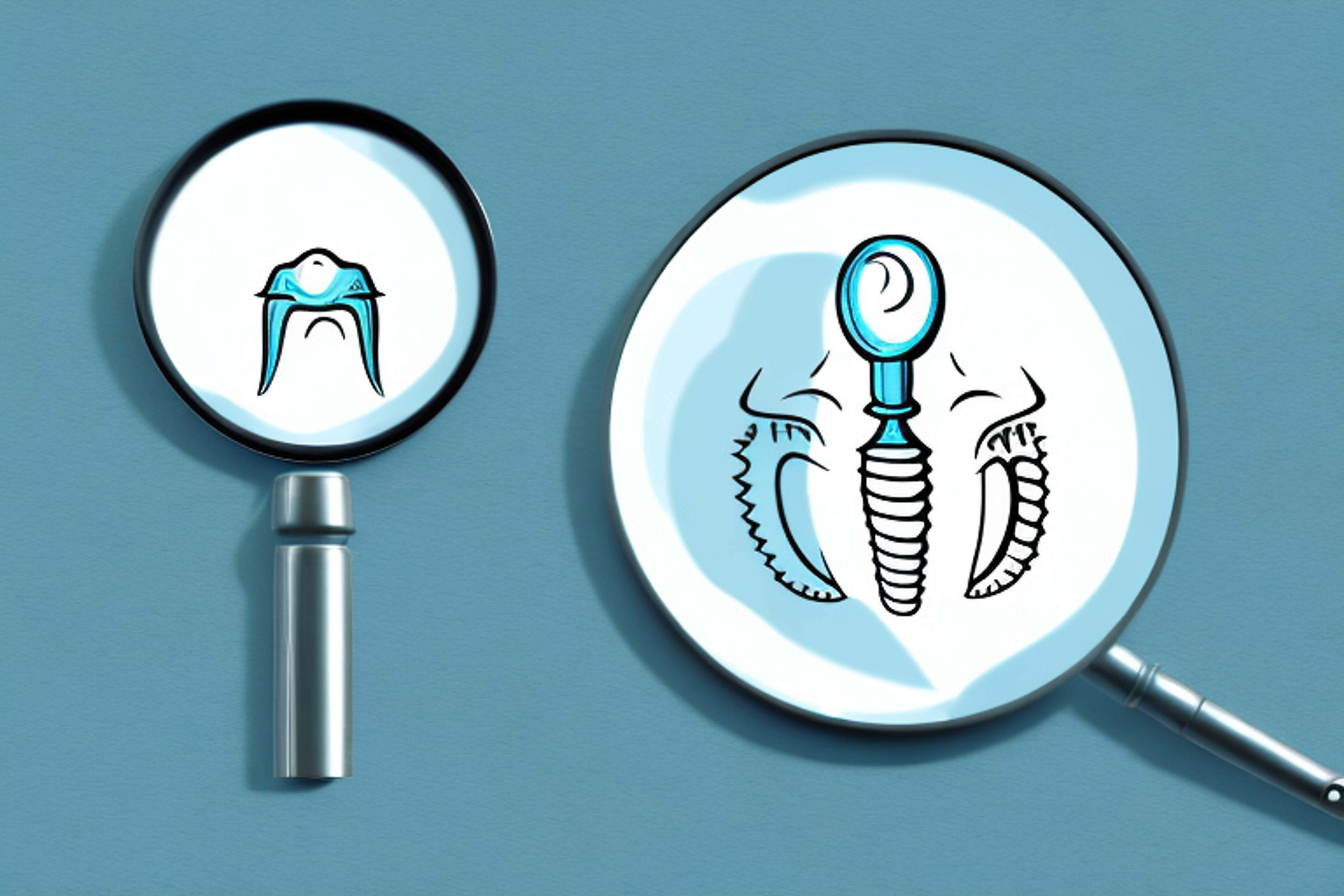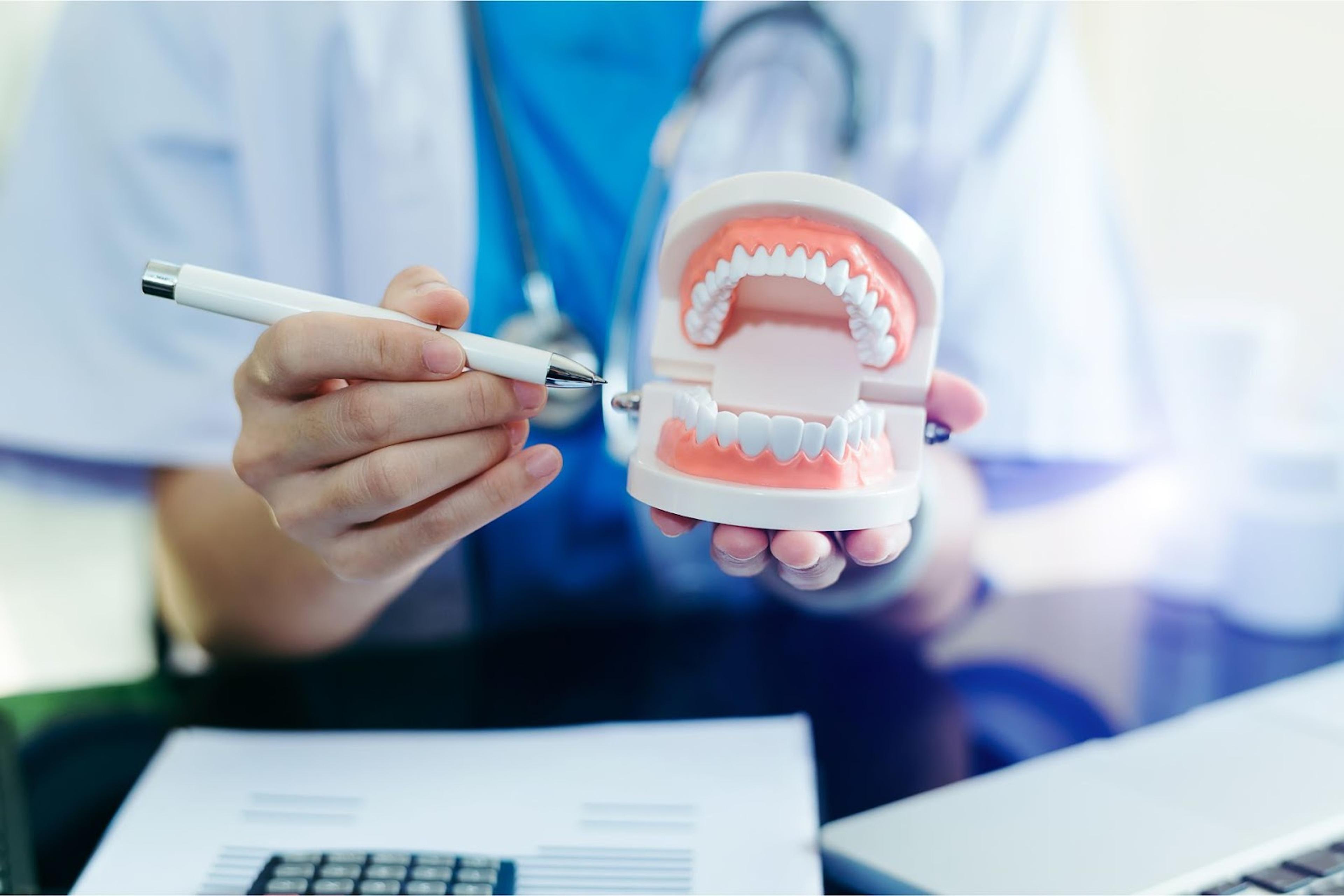Is Your Undergrad Important for Dental School Admissions?
Find out if your undergraduate degree plays a crucial role in getting accepted into dental school.
Posted April 10, 2025

Table of Contents
The decision to pursue a career in dentistry is an exciting one, but it can also be overwhelming. One of the most common questions that prospective students ask is whether their undergraduate education will influence their chances of getting into dental school. The short answer is yes, your undergraduate degree and academic performance do play a role in dental school admissions. In this article, we will explore the main factors that dental schools consider when evaluating undergraduate applications.
The Role of Undergrad Education in Dental School Admissions: An Overview
When dental schools evaluate undergraduate applications, they are looking for students who have a strong foundation in the sciences, excellent critical thinking and problem-solving skills, and a dedication to serving others. Dental school is a rigorous academic program that requires a significant amount of coursework in the natural sciences, including biology, chemistry, and physics. A solid foundation in these subjects is crucial to success in dental school and in a future career as a dentist.
In addition to academic performance, dental schools also consider extracurricular activities and community service when evaluating undergraduate applications. Participation in activities such as volunteering at a dental clinic, shadowing a dentist, or conducting research in a related field can demonstrate a student's commitment to the profession and their ability to work well with others. Dental schools also value leadership skills and the ability to communicate effectively, as these are important qualities for a successful dentist.
How Dental Schools Evaluate Undergrad GPAs and Coursework
One of the most critical factors that dental schools consider when evaluating undergraduate applications is the applicant's GPA. Dental schools typically require a minimum GPA of 3.0, but the average GPA of accepted applicants is typically much higher. Dental schools will review transcripts and evaluate coursework in the natural sciences, as well as other academic disciplines. Students who perform well in difficult courses and earn high grades demonstrate that they can handle the academic rigor of dental school.
In addition to GPA and coursework, dental schools also consider other factors when evaluating undergraduate applications. These may include extracurricular activities, volunteer work, research experience, and letters of recommendation. Dental schools are looking for well-rounded applicants who have demonstrated a commitment to their community and a passion for dentistry. It is important for applicants to showcase their unique experiences and skills in their application to stand out from the competition.
Is Your Major Important for Dental School Admissions?
Your major can be an essential factor in dental school admissions, but it is not the only deciding factor. Success in the natural sciences is crucial, regardless of your major. That being said, certain majors can prepare you better for a career in dentistry. Majors such as biology, chemistry, or biochemistry, provide a more intensive curriculum that can help you build the scientific knowledge and critical thinking skills necessary for success in dental school.
However, it is important to note that dental schools also value well-rounded applicants who have diverse interests and experiences. Majors such as psychology, sociology, or anthropology can provide a unique perspective on patient care and communication, which are essential skills for a successful dentist. Additionally, majors in business or healthcare administration can prepare you for the business side of running a dental practice.
Ultimately, while your major can play a role in dental school admissions, it is not the only factor that is considered. Admissions committees also look at your GPA, standardized test scores, extracurricular activities, and personal statement. It is important to focus on building a strong overall application, rather than solely relying on your major to determine your chances of getting into dental school.
Tips for Choosing the Right Undergrad Major for a Dental Career
If you are considering a career in dentistry, choosing the right major is essential. While there is no "perfect" major for dental school, students who have a foundation in the natural sciences tend to perform better in dental school. Additionally, choosing a major that interests you and aligns with your long-term career goals can help you stand out to dental schools. Whether you choose biology, chemistry, or a related major, make sure to choose courses that will challenge and prepare you for dental school.
Another important factor to consider when choosing an undergrad major for a dental career is the availability of research opportunities. Dental schools value applicants who have experience conducting research, as it demonstrates critical thinking and problem-solving skills. Look for majors that offer research opportunities, such as working in a lab or conducting independent research projects.
Finally, it's important to consider the practical skills you will need as a dentist. While a strong foundation in the natural sciences is important, majors that offer hands-on experience, such as anatomy or physiology, can be beneficial. Additionally, majors that offer courses in communication or business can help prepare you for the business side of running a dental practice.
How Extracurricular Activities Can Boost Your Chances of Getting into Dental School
Dental schools are looking for well-rounded applicants who have demonstrated a commitment to service. Extracurricular activities such as volunteering at dental clinics or participating in community service projects show that you are passionate about helping others and care about the community. Joining pre-dental clubs or organizations can also be helpful, as they offer opportunities to network with other pre-dental students, interact with professionals in the field, and gain valuable experience.
The Importance of Shadowing and Clinical Experience in Dental School Admissions
Shadowing dentists and gaining clinical experience is an excellent way to demonstrate your passion for dentistry and gain a better understanding of the field. Dental schools want to know that you have a realistic understanding of what it takes to be a dentist. Shadowing and clinical experience provide a glimpse into the daily life of a dentist and allow you to demonstrate your ability to work under pressure and communicate effectively with patients. These experiences can also provide excellent opportunities to obtain letters of recommendation, which are a crucial component of dental school applications.
How to Stand Out as an Applicant with a Non-Traditional Undergrad Background
If you do not have a traditional undergraduate background, such as a degree in the natural sciences, you may wonder how you can compete with other applicants. The good news is that dental schools are looking for students with diverse backgrounds and experiences. If your undergraduate degree is in another field, you may want to consider taking additional coursework in the natural sciences or gaining relevant work experience. You can also highlight transferable skills, such as problem-solving, analytical thinking, and teamwork.
Strategies for Addressing a Low GPA or Academic Missteps During Undergraduate Studies
If you had academic missteps during your undergraduate studies, such as a low GPA or failing grades, it is crucial to address them in your dental school application. Dental schools want to know that you have taken steps to improve and are committed to a career in dentistry. You may want to consider retaking courses or pursuing post-baccalaureate coursework in the natural sciences. Highlighting other areas of your application, such as extracurricular activities or relevant work experience, can also help offset a lower GPA.
Top Undergraduate Programs that Prepare Students for Dental School Success
While there is no one-size-fits-all approach to undergraduate education, certain programs are known for producing successful dental school applicants. Some examples of top undergraduate programs for pre-dental students include the University of Michigan, Boston University, and the University of California, Los Angeles. These programs offer rigorous coursework in the natural sciences, opportunities for research, and excellent resources for pre-dental students.
Common Myths About Undergraduate Requirements for Dental School
There are several myths about undergraduate requirements for dental school that can be misleading. One common myth is that you need to major in a natural science to be successful in dental school. While a foundation in the natural sciences is essential, dental schools are looking for students with diverse academic backgrounds and experiences. Another myth is that getting into dental school is impossible with a low GPA. While a low GPA can make the admissions process more challenging, it is not impossible to get into dental school with a lower GPA.
Future Trends in Dental School Admissions and the Role of Undergrad Education
Looking to the future, the role of undergraduate education in dental school admissions is likely to remain crucial. As the dental field continues to evolve, dental schools will be looking for students with the skills and knowledge necessary to provide high-quality dental care. Students who have a background in the natural sciences, excellent critical thinking skills, and a dedication to service will be well-positioned for success. In the coming years, we may see more emphasis on interdisciplinary education and the integration of technology into dental education.
In conclusion, your undergraduate education and academic performance are important factors in dental school admissions. Dental schools are looking for well-rounded applicants who have demonstrated a commitment to service, a foundation in the natural sciences, and a passion for dentistry. By following the tips and strategies outlined in this article, you can increase your chances of getting into dental school and prepare for a successful career in dentistry.











